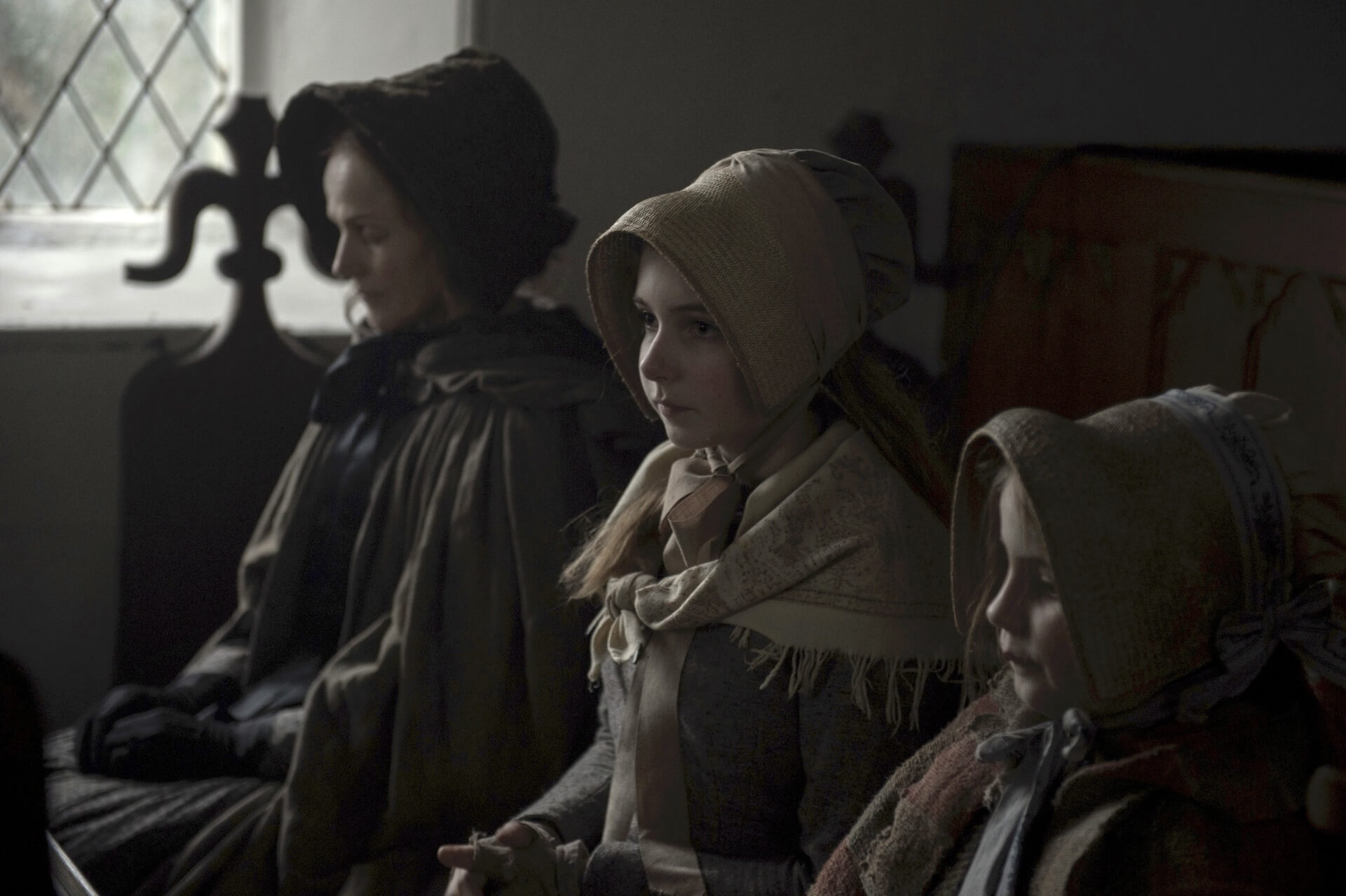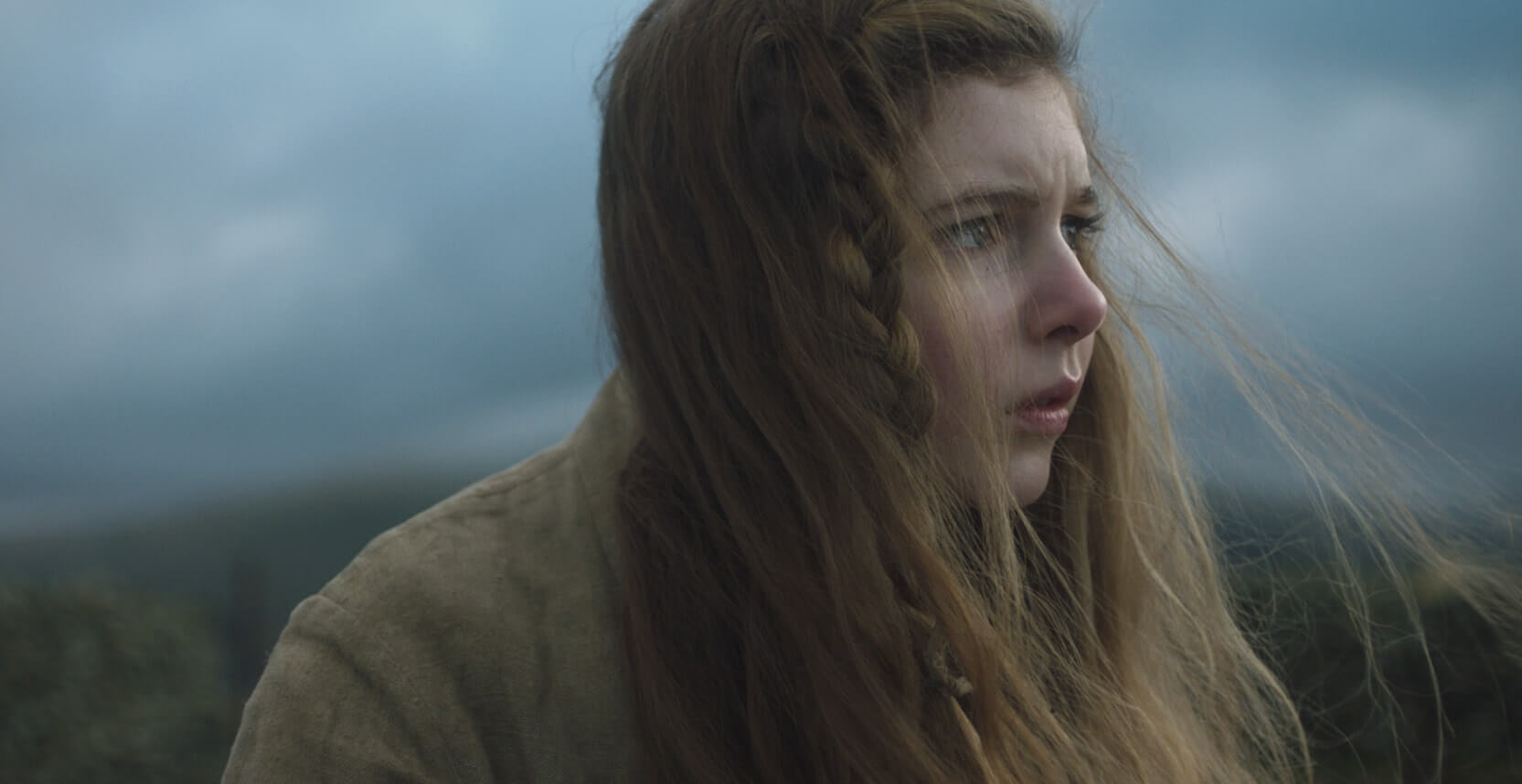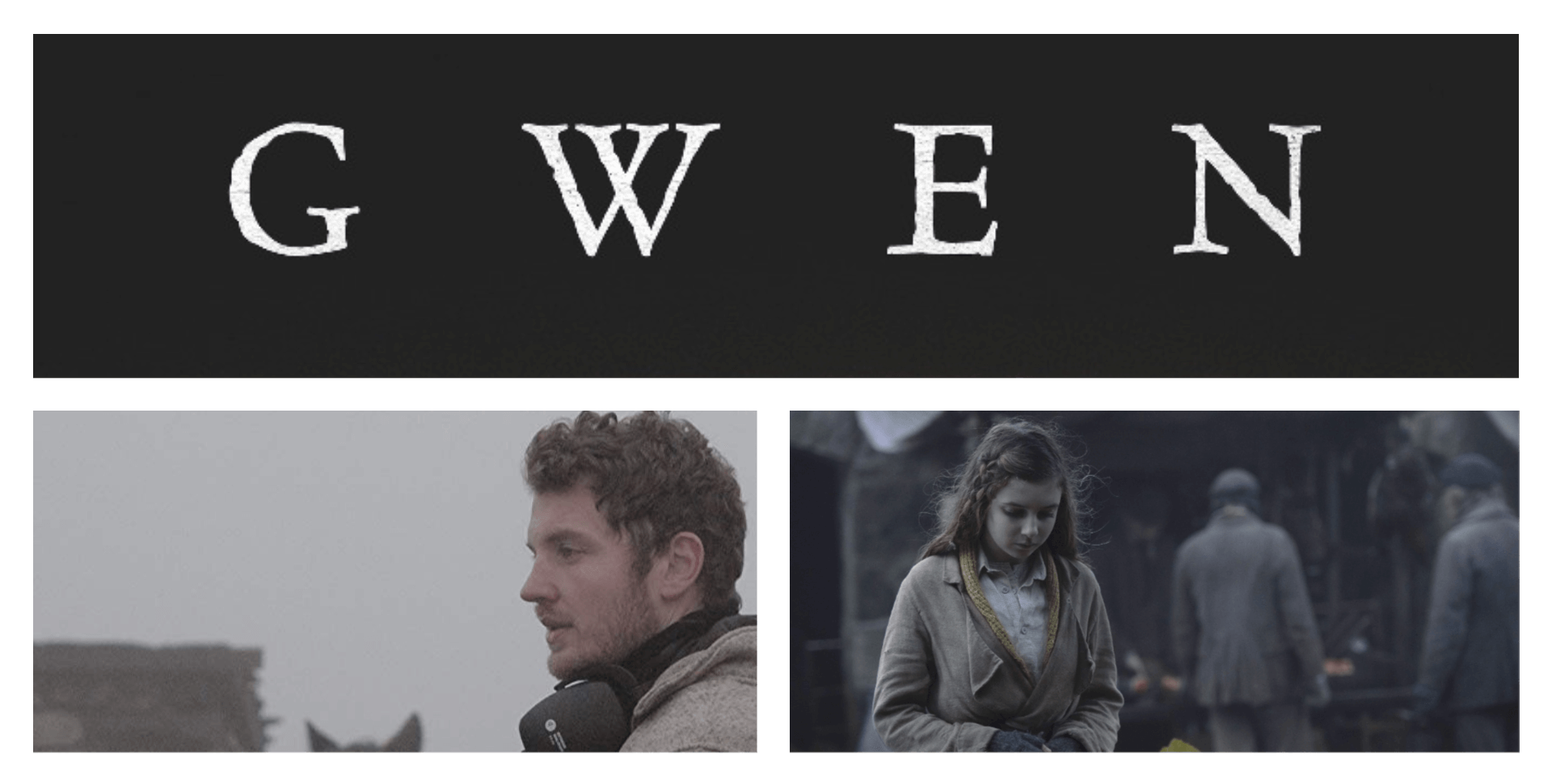Gwen is the debut feature-length, gothic folk-horror film by Writer/Director William McGregor. Set in the 19th Century during the industrial revolution, Gwen tells the tale of a dutiful teenage girl living on her family farm located in the breathtaking mountainous region of Snowdonia, Wales. Several unfortunate events put a strain on Gwen's family and threaten their livelihood of the farm, compounded by her father's sudden disappearance and mysterious nature of her mother's illness. As she attempts to weather the force of unpredictable challenges, an atmosphere of mounting dread envelops her as things go from bad to worse.
Writer/Director William McGregor discussed his latest release 'Gwen' with Borrowing Tape. Shudder and RLJE Films co-release 'Gwen' in select theaters, VOD, and Digital HD on August 16, 2019.
Set in the gorgeous valleys of Wales, the backdrop of Snowdonia served as a stunning contrast to the bleakness of the grim reality faced by the characters. Can you tell us a little bit about how you decided on the filming location?
To be honest, it wasn’t a case of location scouting Snowdonia to shoot my script, the script came from Snowdonia. I stayed in a small cottage and would wander around, soaking in the landscape and researching the history. This fed into my writing, some of the scenes are inspired by locations that I stumbled across. And these are in the film. Such as the monolithic type square rock at the start of the film. I like to work in this way, taking inspiration from a landscape.
What led to your decision to ground the film’s events during a period with very few creature comforts, the 19th Century’s pre-industrial revolution?
The film was originally set in a more fairy tale medieval-type world, inspired by my short film ‘Who’s Afraid of the Water Sprite?’. But as I learned about the Industrial Revolution in North Wales it just made sense to set the story then. It’s a time of great change and turmoil that is still relevant today. Our relationship with the landscape and how we use it is a big theme for me in my work, so the open cast quarry’s, almost like scares on the landscape, were very evocative to me as a writer.

Photo courtesy of RLJE Films
Eleanor Worthington-Cox and Maxine Peake both provide compelling performances, as the dutiful daughter and the mother plagued by grief and onset illness. How was the casting process to find the right people to play Gwen and Elen?
We were very lucky to have Maxine, she is able to play both earthy and grounded and at the same time, there’s also something ethereal or even supernatural about her. Which was incredibly important for the story and character, that mix of the spiritual and natural. So I’m very grateful that she plays the mother in the film.
I’d love to take the credit for discovering Eleanor, but the truth is despite her young age she already has an Olivier Award and a BAFTA nomination. So she brought a huge amount of experience and talent to the film in her own right. Without her, we don’t have a film, simple as that. She’s something of a shining light in the darkness.
With facing familial hardships such as her mother's seizures and father’s disappearance, things go from bad to worse for Gwen’s family unit. What is the major force wreaking havoc on this family and why? What is to become of Gwen following the events of the ending?
I wanted to tell a story that made the audience question what they where being shown, the film is about challenging where suspicion and dread come from. Is it something otherworldly and supernatural or something more grounded and closer to home. This balance was a constant challenge in the writing process. Have I taken it too far into the fantasy? How do I bring it back towards the real world without breaking the spell of the film? To that point though I don’t want to give much away, not just for fear of spoilers. But because I think it's good to leave some details for interpretation. Especially regarding the ending.

Photo courtesy of RLJE Films
What do you hope audiences will take away from watching Gwen?
Although I have an intention for the meaning of these images and the film as a whole, I actually believe the power of interpretation lies with the viewer, and that every interpretation of the film will be slightly different depending on what a viewer brings to it. It should be a personal experience. That said if there’s one thing I hope people take away then that's to question the narratives they are being told.
What films and/or directors have had the biggest impact on you as a filmmaker?
I love Ingmar Bergman, his use of landscape and intimate storytelling. But also Folk Horror. Weirdly I think some of the haunting BBC adaptations from the ’70s have had a big impact on me. Stuff like Robin Redbreast and the MR James adaptations like ‘A Warning to the Curious’. I also think you can consider some of Bergman's work as Folk Horror as well, definitely The Virgin Spring and The Seventh Seal.
What’s next for you?
I’m currently writing a script called 'Gun Dog' with the support of the BFI and Film4. It’s about a poacher caught up in the brutal blood sport of badger baiting. I’m thinking of it as a rural revenge story.

